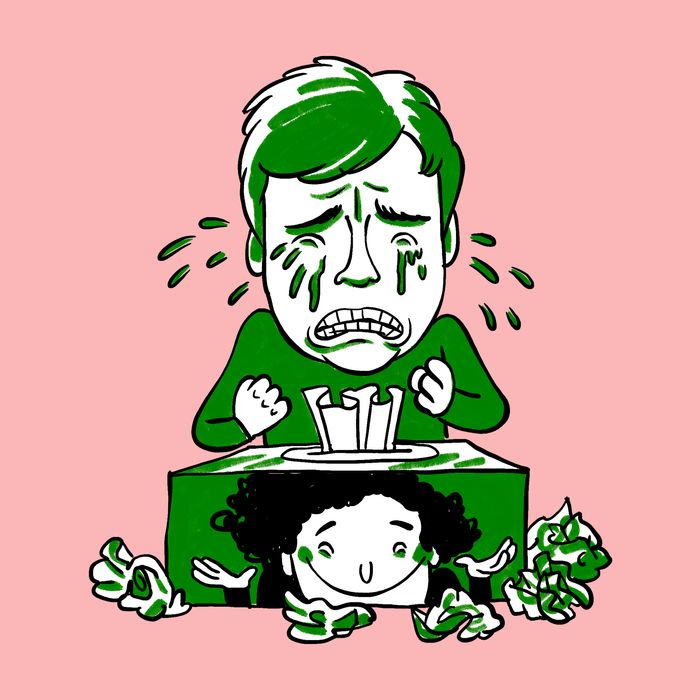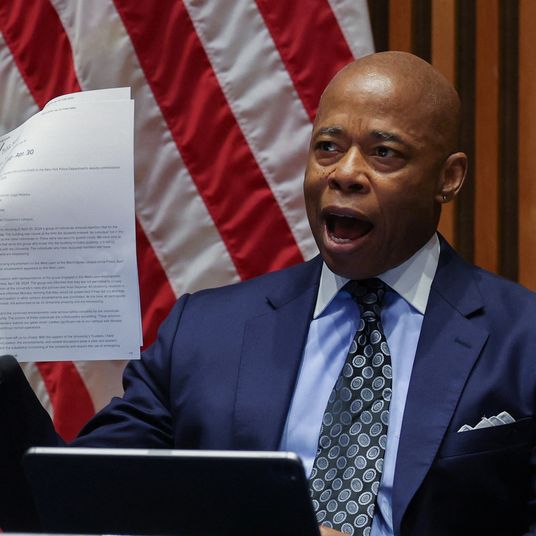
It’s early November. You’re into crypto. It has probably been a rough few months — prices have fallen, and some seemingly solid projects recently collapsed. You’ve got some assets tied up with FTX, the crypto concern founded by Sam Bankman-Fried. It’s one of the largest exchanges and is run by a heavily connected industry heavyweight, a media darling with an interest in philanthropy who collects celebrity endorsements and investments. Soon, however, warning signs start flashing. FTX is in free fall. SBF is tweeting nonsense. You’ve finally realized you have to pull your money off FTX, but when you try to, you see it’s too late. The exchange has frozen withdrawals. Customer service isn’t responding, your apps aren’t even working anymore, and press coverage is confusing, contradictory, slow, and written for outsiders.
So you do what you’ve always done when you need raw information about what’s going on in crypto: You check Telegram, the sprawling chat platform that plays a central role in the crypto ecosystem for investors, lurkers, and scammers alike.
In the good times, FTX’s official presence on Telegram helped the company cultivate a reputation for responsive customer service. When things were falling apart at FTX, they fell apart here, too, as thousands of panicked users flooded its support channels. Moderators — working for FTX, still — failed to keep up and then evidently turned off new posts in the room. On November 11, an FTX representative posted an update that offered additional grim news to customers already worried the company was on the brink of bankruptcy: “FTX has been hacked.”
More users piled on, posting thousands of messages over the next few days. Desperate account holders from around the world asked one another what was going on and shared rumors and conspiracy theories, some of which turned out to be true. On Tuesday, November 15, the group seemed to close to new messages from anyone other than its mods.
Users, now even more worried, fled into smaller, unofficial Telegram channels to share bits of hopeful news and, mostly, to reckon with potential losses, which are in some cases profound.
In a group called FTX Affected Members, Moe, a 30-year-old in the Netherlands who tallied up his potential losses: “€200k from family, a €50k business loan from my company which I have to pay back within 2 years, €20k from my mother’s savings, €60k my own savings and profits from investments over the past 4 years.” The prospect of losing his own money was bad but manageable — he runs a food-distribution and retail business and could “start over.” The family money is a different story. He spent a future inheritance from his father and invested his mother’s life savings. “I can’t even look them in the eye,” he says. “I trusted all the claims FTX and SBF made on changing the world, veganism, giving away money to good causes, not caring about materialism, and treating people fair.”
Moe isn’t the only one who points to SBF — who received glowing mainstream-press coverage and spent millions of dollars advertising directly to customers and paying celebrities for endorsements — as their reason for investing with FTX. User @riskmaverick, who is also six figures in with the exchange, spent ten years as an investment banker in London. He saw SBF as credible because of his time as a trader at Jane Street, a highly regarded quant firm headquartered in New York. “Where I went wrong,” he says, was “understanding SBF as a Wall Street guy who knows what he’s doing.” His losses, he says, would represent “80 percent of liquid current cash savings from years of work,” setting him back five years at least (he’s in his early 40s). “It’s a painful situation. Most of my friends don’t know how to respond.”
The perception that FTX was unusually safe because of its links to the U.S. was pervasive among locked-out customers. Adrian, a photographer in Berlin with his “first ever” savings trapped in FTX, assumed the exchange would have been heavily regulated. It got his attention in the first place with an ad starring Larry David. “The first time I have something and I lost it,” he tells me in a Zoom call. “I love Larry David. I can’t believe this.”
Nova, a 32-year-old trader in Brazil who said he had more than $80,000 in the platform, told the group that if he couldn’t get his funds back, suicide was an option, and he posted a photo of a loaded syringe. Asked if he has a message he’d like to convey to SBF, he says “no”: “People at the top look at us in disgust; they have no empathy for the lower class, and we are just a means to their end to get rich.”
The anonymous organizers of FTX Affected Members are asking for names to add to a list that, they say, could one day be presented in bankruptcy court by an American law firm. It’s a long-shot strategy, they know, and organized on a shoestring; one the group’s most active administrators is helping run the group from a gas station in Ukraine, while his home is without electricity. “We are in a bad situation,” he told me. “FTX ripped us.”
On Friday, FTX’s official channel published a note directing users to the splinter group with an ironic disclaimer: “Users should exercise caution.” Most users won’t need the reminder. Before FTX’s official Telegram channel was paused, it briefly transformed into a scammer’s paradise, flooded with messages from users claiming to work for FTX and offering help to withdraw funds. Within minutes of joining, I received multiple Telegram voice calls from fake FTX support agents expressing sympathy and promising quick solutions. “All you’re required to do,” a man with a gentle voice told me, “is log in to our systems with an existing crypto wallet.”
It was an extreme example of a familiar pattern in crypto, and on Telegram: When things are going well, it can feel like you’re part of a community, building some sort of future together, or at least helping each other make money; when things go bad, you’re suddenly and utterly on your own, angry, confused, and ashamed.
More on sam bankman-fried
- The Effective Altruists’ Castle Is for Sale — and Has Become a Culture-War Meme
- Sam Bankman-Fried’s Final Trip to Court
- SBF Planned to ‘Come Out As Republican’ With Tucker Carlson































